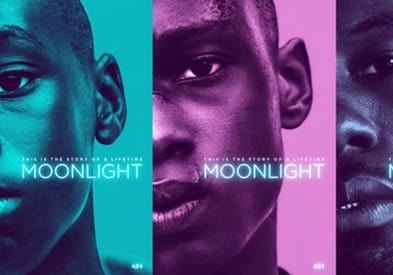Film Review: “Moonlight”
January 11, 2017
Human nature and human sexuality are filled with mystery.
All cultures, all peoples, each society and every religion continue to mine the depths of what it means to be a person, a human being, a child of God.
The best of these entities strive fearlessly beyond the known and comfortable regions of the psyche and soul toward encounters with others whose lives and faiths and cultures are different from their own.
Thoughts and feelings that seem to come out of nowhere but have been brewing inside our bowels suddenly are clarified through encounters with those who are different — uniquely “persons,” but equally human, equally children of God. Initially, these encounters may make us feel uncomfortable. They can generate fear within and outwardly project hate. We may feel compelled to mistreat others because we see in them manifestation of shadows within us, feelings we would navigate differently, choices we could but would not make or might have otherwise never entered our minds.
It takes great maturity, confidence and humility to address those feelings without resorting to hate and prejudice, or worse, violence. It takes compassion and deep faith in God to scale the heights of knowledge that lead to understanding, to empathy and compassion. These are the challenges of our times and it is good to take every opportunity to address them.
“Moonlight” offers us this kind of opportunity.
It is an art film filled with pregnant pauses, lingering moments of silence, minimal dialogue and strong visuals that invite contemplation and soul-searching regarding our aesthetics and attitudes, prejudices and fears.
It is a character study that moves from the particularities of sexual identity (the film’s surface topic) into something universal – everyman’s need for acceptance and affection.
It is a coming-of-age story in which the actor playing the boy (nine-year-old Alex Hibbert) is reflected in the actor playing the adolescent (Ashton Sanders) and both are ever-present in the one who becomes the man (Trevante Rhodes) even though the younger actors have long left the screen.
This is not trick photography but the workings of the script, the director and the three major actors whose ghost-like presences permeate everything we see and hear — and each actor is phenomenal. Trevante Rhodes’ penetrating eyes and body language are particularly impressive in the ways they express the spirits of his younger selves. Watching him impresses upon us the knowledge that no matter our age or life’s circumstances, the child within remains with us always. “Moonlight” reminds us how the conscious and subconscious wounds of a child may only be reconciled to adulthood when the milk of human kindness is applied, i.e., when forgiveness reigns and self-acceptance and love abound.
It’s a beautiful message. A beautiful film.
For those who have not yet seen “Moonlight,” some more plot details:
This film looks at the life of a Black American coming into a gradual awareness of his sexual identity amidst poverty and its corresponding fears and despondencies. We meet Chrion (aka “Little”) at home and school where he is surrounded by fellow students who are equally unsure of who they are and what they truly feel, but who possess greater bravado and who seem to know (How do children know these things?) that one of their own is somehow “different.”
Yes, he is reticent to a fault, shy and self-conscious and likely to be scapegoated on those counts alone. And yet they sense something more about him — that this boy’s sensitivity has a sexual component he does not know he has and that this includes an attraction to students of the same sex. The film lets us sit with that — the confusion, the sadness, the violence and cruelty before it moves us into the next phase of important relationships.
Although the adults who teach in his school are mostly clueless, and the boy’s mother (an excellent Naomie Harris) is a drug addict, a compassionate drug dealer and his caring girlfriend take the boy under their wing. Played compellingly by Mahershala Ali and Janelle Monae, these two characters prove welcomed Good Samaritans whose empathy toward the boy evokes our own. And what a powerful statement is made as we watch a somewhat disgraced and compromised grown man claim his irrepressible dignity by fathering a boy so desperate for true fathering. These scenes alone are worth the price of admission.
From here on in, the film eases us through levels of understanding that lead to compassion and hope. And, in the final scenes, when the adult Black encounters the adult Kevin (another character played chronologically by three terrific actors (nine-year-old Jaden Piner, 16-year-old Jharrell Jerome, adult André Holland) we realize we have been greatly privileged to have entered into this story. And, we just may be — if we are humble enough, honest enough, courageous enough — more fully human.
Paulist Fr. James DiLuzio is a member of our preaching apostolate, leading parish missions and retreats across the United States. He is the creator of “Luke Live.”
